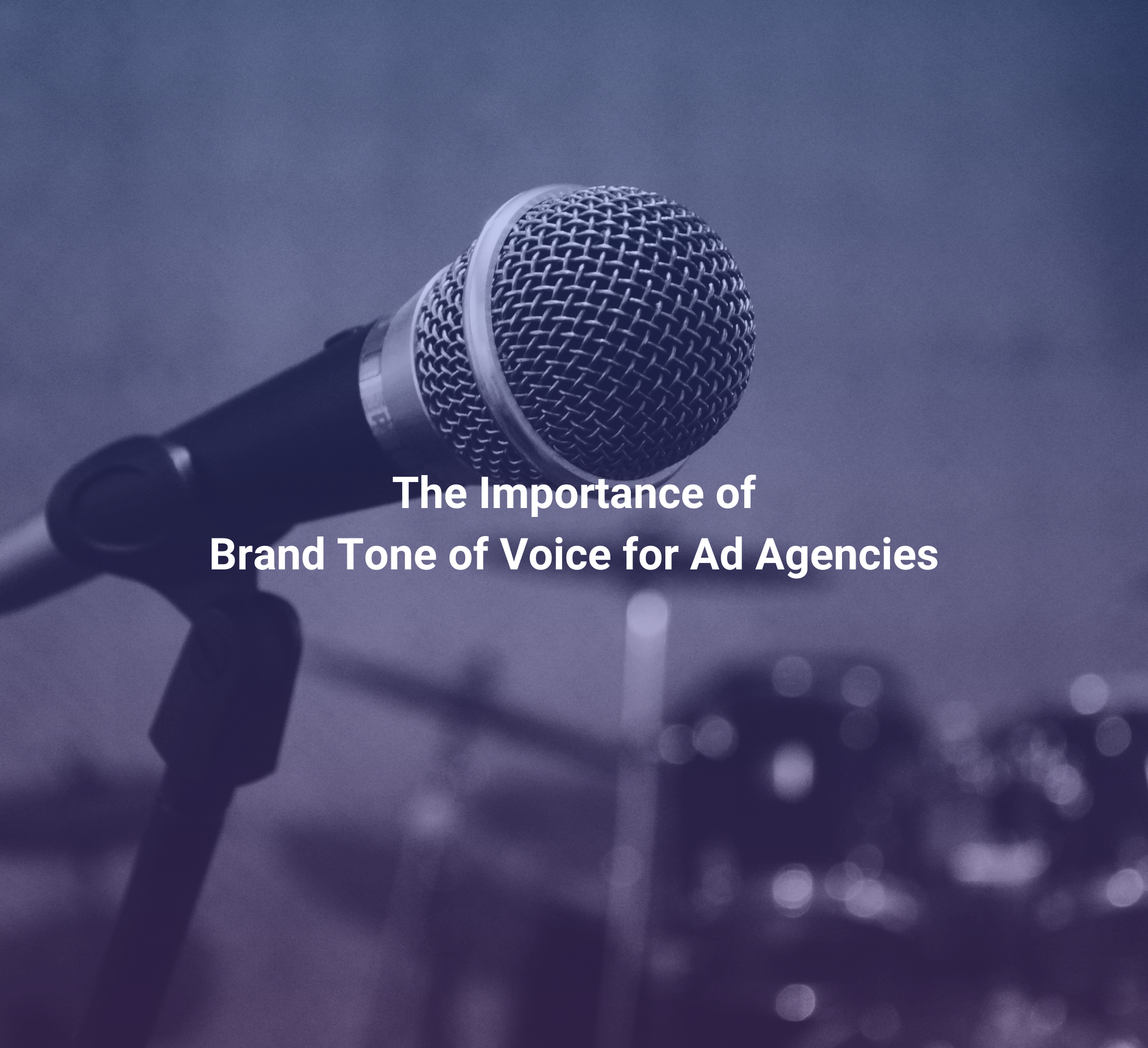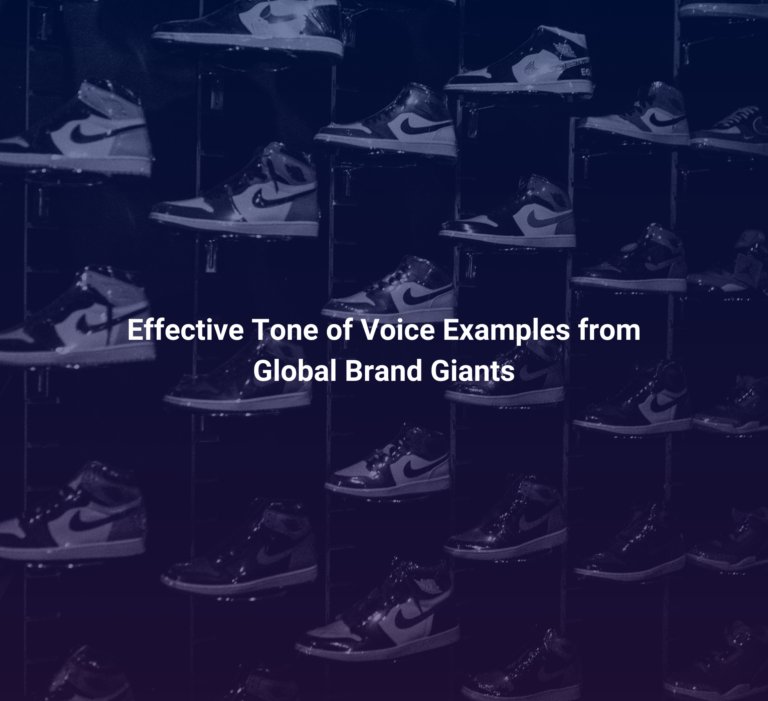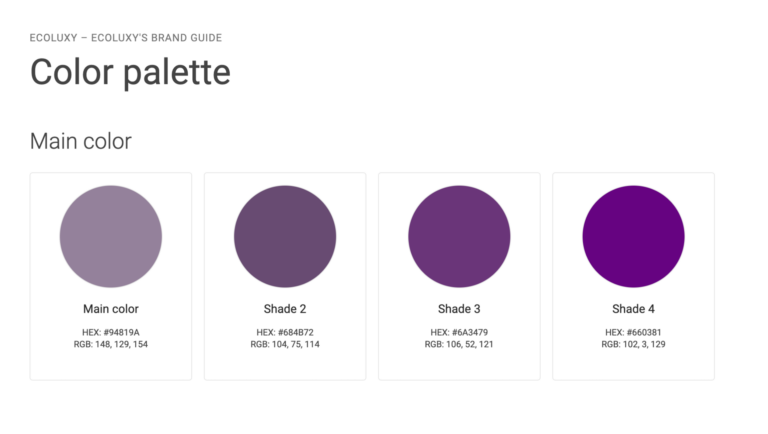The Importance of Brand Tone of Voice for Ad Agencies
Defining and understanding brand tone of voice is crucial in today’s world of marketing, and it’s particularly essential for ad agencies. As ad agencies work on behalf of their clients to create effective advertising campaigns, they must be well-versed in the brand’s tone of voice to create consistent messaging across all marketing channels.
In this blog post, we’ll dive deeper into why knowing and defining brand tone of voice is so important and how ad agencies can benefit from it.
What is Brand Tone of Voice?

Before we dive into the importance of brand tone of voice, let’s define what it is. Brand tone of voice is the personality of a brand that is expressed through the words, phrases, and messaging used in all forms of communication. It is how a brand speaks to its audience and how it wants to be perceived by that audience.
It includes the language, vocabulary, style, and messaging used in all marketing channels, such as social media, website content, email campaigns, and advertising. The tone of voice reflects a brand’s values, mission, and vision.
Why is Brand Tone of Voice Important for Ad Agencies?
Now that we know what brand tone of voice is let’s discuss why it’s important for ad agencies to know and define it. We’ll go over:
Consistent Messaging

Ad agencies work to create effective advertising campaigns for their clients across multiple marketing channels. Consistency in messaging is essential to building brand recognition and trust. If a brand has a consistent tone of voice across all channels, it is easier for customers to recognize and remember the brand.
This is why ad agencies must know and understand a brand’s tone of voice to create consistent messaging in all of their marketing efforts.
Brand Image

A brand’s tone of voice can affect how customers perceive the brand. If a brand has a playful, lighthearted tone of voice, customers may perceive the brand as fun and approachable. On the other hand, if a brand has a more serious tone of voice, customers may perceive the brand as trustworthy and professional.
Ad agencies need to understand a brand’s tone of voice to create messaging that reflects the brand’s values and mission.
Building Brand Loyalty

A consistent tone of voice can help build brand loyalty. If a brand has a unique and recognizable tone of voice, customers may feel more connected to the brand. Ad agencies that understand a brand’s tone of voice can create messaging that resonates with customers and builds trust and loyalty.
Tips for Defining Brand Tone of Voice

Now that we’ve established the importance of brand tone of voice let’s discuss some practical tips for defining it.
Identify the Brand’s Personality

One of the first steps in defining a brand’s tone of voice is to identify the brand’s personality. Is the brand playful, serious, or somewhere in between? What values does the brand stand for, and what is its mission? Once ad agencies have a good understanding of the brand’s personality, they can start to develop messaging that reflects it.
Know the Target Audience

Ad agencies must also know the brand’s target audience to define its tone of voice. Different audiences will respond to different voices. For example, a brand that targets teenagers may have a more playful and informal tone of voice than a brand that targets business professionals. Ad agencies should create messaging that speaks directly to the target audience and ensure it stays consistent with the client’s brand.
Develop Key Messaging

Once ad agencies understand the brand’s personality and target audience, they can develop key messages that reflect the brand’s values and mission. These messages should be consistent across all marketing channels and should be tailored to the target audience.
Examples of Effective Brand Tone of Voice
We’ve discussed the importance of brand tone of voice and some tips for defining it, let’s look at some examples of effective brand tone of voice.
Nike
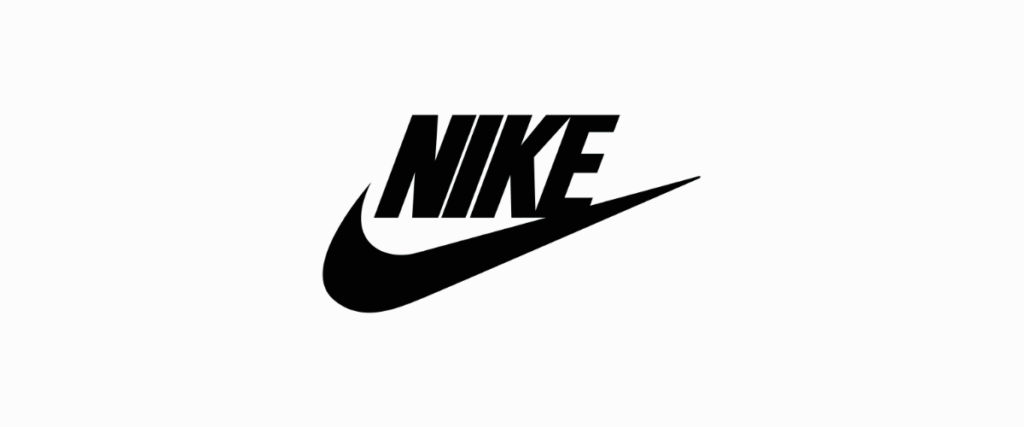
Nike is a brand that has a powerful and recognizable tone of voice. Their messaging is all about inspiration, motivation, and pushing yourself to be your best. Nike’s tone of voice is confident, determined, and empowering, which is reflected in its famous tagline, “Just Do It.”
This tone of voice is consistent across all marketing channels, from their TV commercials to their social media posts, and it resonates with their target audience of athletes and fitness enthusiasts.
Apple

Apple is another brand that has a distinct and effective tone of voice. Apple’s messaging is all about simplicity, elegance, and innovation. Their tone of voice is sleek, sophisticated, and aspirational, which is reflected in their products’ design and marketing.
Apple’s tone of voice is consistent across all marketing channels, from its website to its TV commercials, and it appeals to its target audience of tech-savvy consumers who value design and innovation.
Coca-Cola
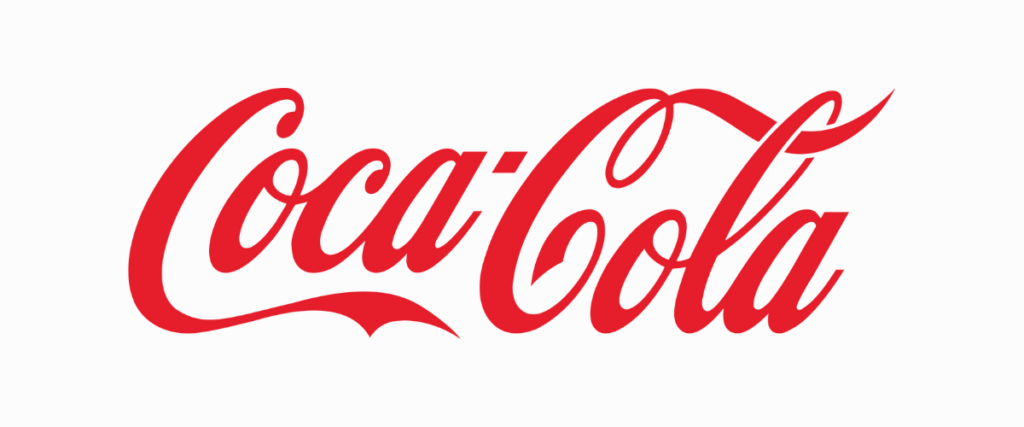
Coca-Cola is a brand that has a tone of voice that’s all about happiness, togetherness, and sharing. Coca-Cola’s messaging is about creating happy moments and memories, and its tone is warm, friendly, and nostalgic.
This tone of voice is consistent across all marketing channels, from their TV commercials to their social media posts, and it resonates with their target audience of all ages who value happiness and togetherness.
Conclusion
In conclusion, brand tone of voice is an essential component of effective marketing, and it’s particularly important for ad agencies. Ad agencies must know and understand their client’s brand tone of voice to create consistent messaging across all marketing channels, build brand recognition and loyalty, and connect with their target audience.
By following some practical tips for defining brand tone of voice and looking at some examples of effective brand tone of voice, ad agencies can create messaging that resonates with customers and drives business growth.

At brandguide.io, we understand the importance of brand tone of voice, and our platform is designed to help ad agencies and marketing professionals set clear guidelines for their client’s brand tone of voice quickly and easily. Take a look at our latest release to see how we work relentlessly to become the number-one tool for ad agencies!
Our platform offers a clean and organized setup that makes it easy to define and implement a consistent tone of voice across all your clients’ marketing channels. We invite you to try brandguide.io today and see how it can help you take your clients’ branding to the next level. Start today!
References
7 Key Message Examples to Inspire Your Marketing by Ellis Fitch
Brand Tone of Voice by Judy Delin
